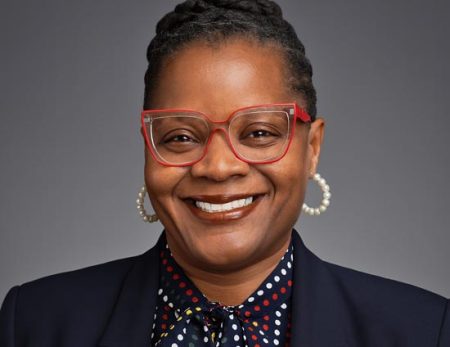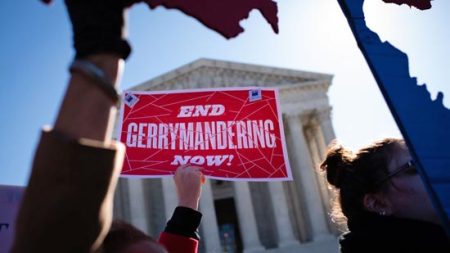The Rise of the Unaffiliateds
Plaintiffs allege that it is unconstitutional to prohibit unaffiliated voters from being appointed to the State Board of Elections.
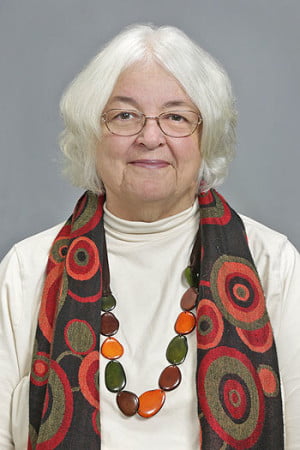
Photo: Tim Barnwell
Legislative News by Nelda Holder –
North Carolina currently has some 7.3 million registered voters.
Broken down into affiliation, there are almost 2.5 million Democrats, and 2.2 million Republicans, with a third category—“Unaffiliated”—now topping each of the formerly dominant categories, with nearly 2.6 million voters choosing to shy away from familiar party designations.
This new structure has created a kerfuffle regarding the NC Board of Elections, in a lawsuit brought by Common Cause North Carolina against NC House Speaker Tim Moore and Senate President Pro Tempore Phil Berger. Joining Common Cause as plaintiffs are four NC voters, Elizabeth Smith, a school librarian in Wake County; Seth Effron, a Beaufort County journalist; Dr. James M. Horton, a Mecklenburg County physician; and Tyler C. Daye, a 26-year-old outreach worker for Common Cause.
Why the lawsuit? Because the plaintiffs allege that it is unconstitutional to prohibit (without valid reason) unaffiliated voters from being appointed to the State Board of Elections—currently populated by members appointed by the governor under general statute limitations (NC Gen. Stat. §163-19) requiring those appointments to be registered Republicans or Democrats. Unaffiliated registrants are, by statute, disqualified from appointment.
The lawsuit points out that unaffiliated voters are not only the greatest number of total voters, but also the largest group of voters in 19 of the state’s 100 counties and second largest in another 72, trailing both Democrats and Republicans in only nine counties.
As of July 30, 2022, this primacy included “fast-growing urban areas like Wake, Buncombe, Cabarrus, and New Hanover” as well as “mostly rural counties in the historically Republican west (e.g., Haywood, Jackson, Madison, Swain) and the historically Democratic east.
For one brief moment (March to December, 2018), G.S. § 163-19 disturbed the 120-year history of the SBOE by requiring the appointment of one unaffiliated voter—a situation quickly undone with the ban restored by the end of the year.
Striking Back
The current lawsuit notes that barring plaintiffs and all other unaffiliated voters from serving on the State Board produces, among others, these following results:
- It renders ineligible a large pool of “talented and able citizens” from service on the board;
- It is arbitrary, capricious, and “not rational” because it excludes voters who “are not aligned with a political party and are thus more likely to fairly and impartially participate” in the board’s work;
- It is destructive of democracy because it “undermines citizens’ confidence” by encouraging them to believe election officials are chosen to “look out for their parties’ interests” rather than fairness for all;
- It penalizes plaintiffs and unaffiliated voters without valid reason “because of their decisions not to affiliate with either the Republican or Democratic parties.”
The lawsuit leans on the First Amendment to the US Constitution, which provides that no state make any law abridging “freedom of speech”—which includes freedom of association. Requiring affiliation with either Democratic or Republican party, the suit claims, is a limitation of association.
Excluding unaffiliated voters from the SBOE “is not rationally related” to legitimate, valid, or compelling government interest, according to the suit. Plaintiffs otherwise qualified for board service “are denied that opportunity solely because of their political beliefs and affiliation.”
Requested Relief
The lawsuit requests that the statute in question be declared unconstitutional and void, in violation of the First and Fourteenth Amendments, and that the state be enjoined from enacting any similar law discriminating against unaffiliated voters.
Bob Phillips, executive director of Common Cause NC, describes the legal effort this way:
“North Carolinians shouldn’t be forced to join a political party in order to serve the public. Barring unaffiliated voters—who are North Carolina’s biggest group of voters—from being members of the State Board of Elections is profoundly unfair and clearly discriminatory.” Phillips points to how important it is for the state board to reflect the people of North Carolina—including the nearly 2.6 million who are not members of a party. “Unaffiliated voters deserve a seat at the table in the administration of our state’s elections.”
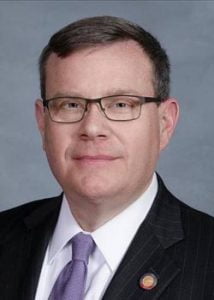
Tim and Phil, a Courting Pair
Moore and Berger, the Legislature’s top dogs, are assuredly no strangers to lawsuits. And often, they are the pair that bring them on.
One current, and vastly significant, legal intervention on their part is the Berger v. North Carolina Conference of the NAACP case which was ruled on by the US Supreme Court on June 23 (one day before the blockbuster abortion law decision in Dobbs v. Jackson Women’s Health Organization). The ruling reversed a US Court of Appeals 4th Circuit decision which had upheld an April 2021 ruling by a state Supreme Court panel concluding that the Legislature’s voter photo ID law violated the state’s constitution.
In an interesting opinion piece by Keith T. Barber, editor-in-chief of The Local Reporter (an Orange County-based online news source), this important ruling “feels like an end run around the authority of Governor Roy Cooper and NC Attorney General Josh Stein—authority vested (in them) by North Carolinian voters.”
Barber’s point is that the US Supremes gave two politicians representing the right to intervene in a legal case “on behalf of all North Carolinians despite the fact that the state’s top law enforcement official—who represents the will of more than 2.7 million voters—has been defending the state’s interest in the case.”
At issue has been the drawing of congressional districts in the state. Berger and Moore are challenging the authority of the NC Supreme Court to order a redrawing of congressional maps due to “an unconstitutional partisan gerrymander.”
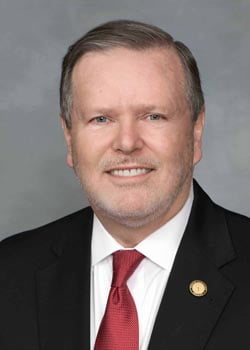
In his commentary, Barber refers to the same proportions of Democrats, Republicans, and Unaffiliated outlined earlier in this column. His conclusion: “Considering the recent decisions of the US Supreme Court—decisions that openly defy the will of the American people—it would not be surprising if two Republicans who represent roughly 1.2 percent of our state’s electorate are allowed to act as representatives of all voters.”
Berger & Moore Joint Letter
Closer to home, the state’s two top legislators have responded to the US Supreme Court’s wildly disorienting abortion ruling by attempting to reinstate a 20-week abortion ban in this state that was previously ruled unconstitutional.
In a statement on June 24, Berger asserted that the legislature would take “immediate action to ensure North Carolina’s late-term abortion ban is reinstated.” He called the Supreme Court’s decision “long overdue and a major win for protecting life … (returning) authority back to the states to determine abortion law.”
Berger noted, however, that he did not anticipate legislative action prior to adjournment—but which adjournment? The House and Senate are scheduled to be playing adjournment hopscotch over the next few months, returning at least once a month until the end of the year.
Is the NC Ballot Turning Green?
In an on-again, off-again battle for the Green Party in North Carolina, elections officials have been ordered to allow the third-party candidate’s name to be placed on the November ballot, threatening the Democratic Party’s acknowledged best shot at filling a Republican-held Senate seat being vacated by retiring Sen. Richard Burr. Former NC Supreme Court Chief Justice Cheri Beasley (D) is facing U.S. Rep. Ted Budd (R) in the important race, which has now turned into a tangled web involving the nascent NC Green Party.
A criminal investigation of signatures gathered by the Greens in order to become a recognized party in this state is ongoing, but more than enough signatures have been validated to meet the necessary threshold (13,865 signatures) to grant the party official status. The State Board of Elections has therefore approved the party’s formal recognition.
Candidate Matthew Hoh is slated to become the third contestant on the ballot. And amidst this tangle of rulings, Hoh’s campaign has produced a rather fascinating web page of legal proceedings (Court Filings in NC Green Party v NCSBOE), including the original suit against the NC State Board of Elections on July 14, 2022. Also of interest for political gawkers is the fact that the judge who decided Hoh would be on the ballot was US District Judge James Dever III, a Republican appointed by Pres. George W. Bush. His August 5 order prohibits the SBOE from enforcing its July 1 candidate filing deadline against Hoh, but on Monday, August 9, the NC Democratic Party filed an appeal seeking to stop the federal court’s order to place Green Party candidates on the state ballot in November.
To further complicate matters, the North Carolina Democrats are in state court as of August 3, 2022 seeking to overturn the SBOE’s unanimous vote certifying the Green Party. Tennis, anyone?
Nelda Holder is the author of The Thirteenth Juror – Ferguson: A Personal Look at the Grand Jury Transcripts.


